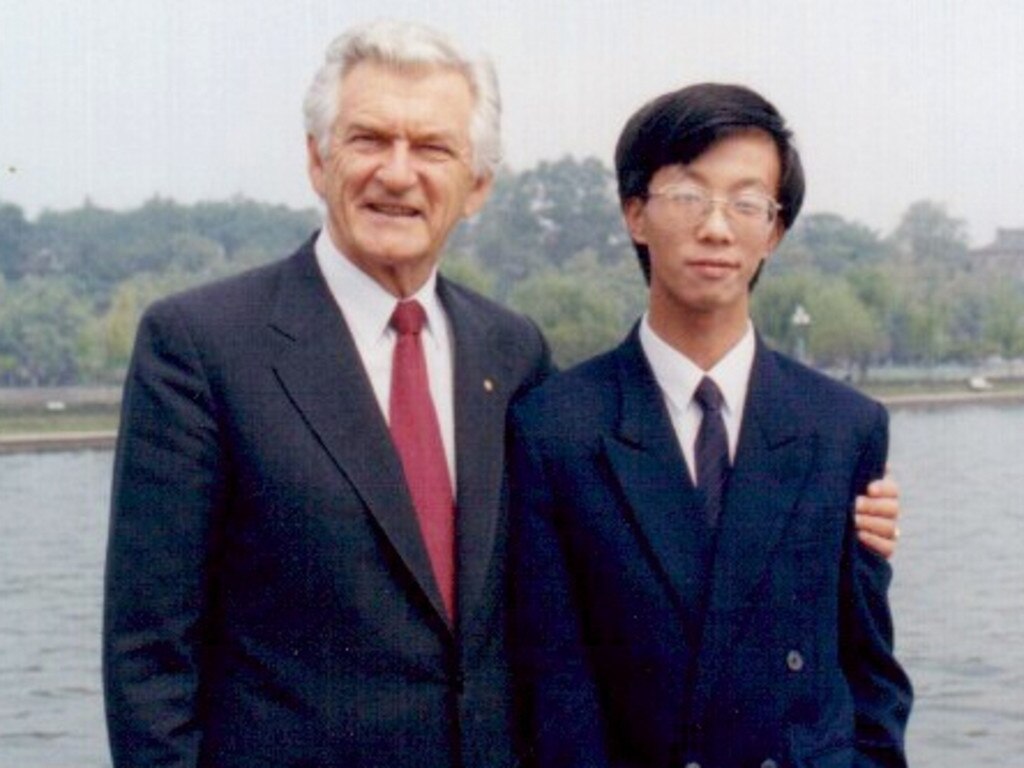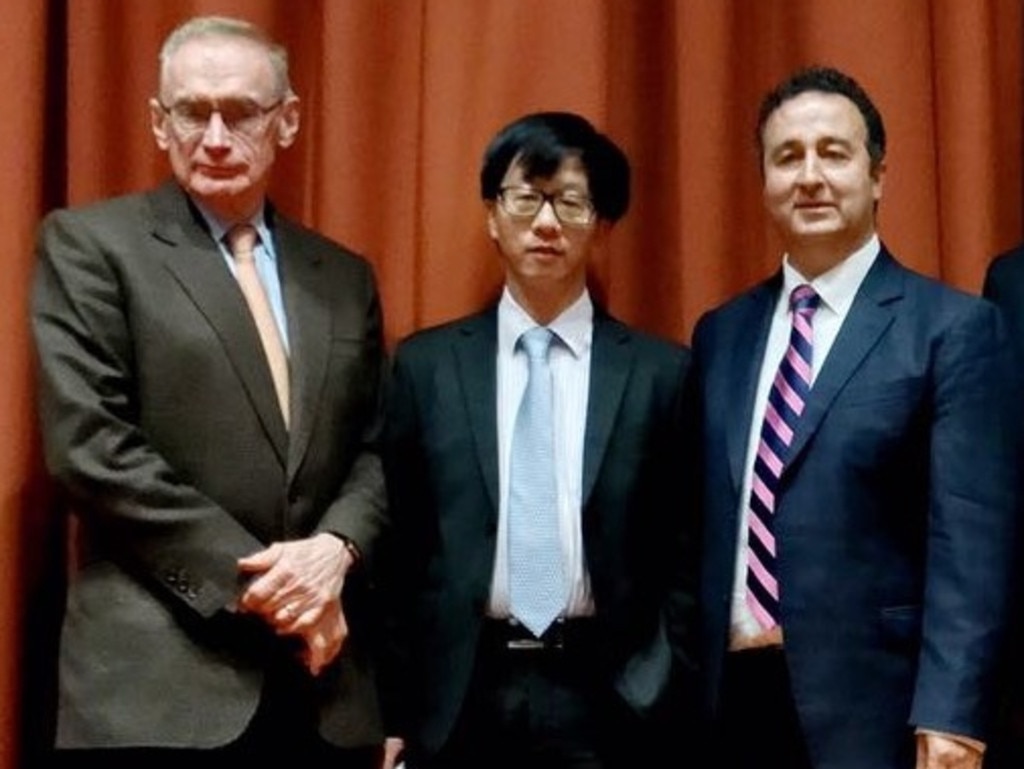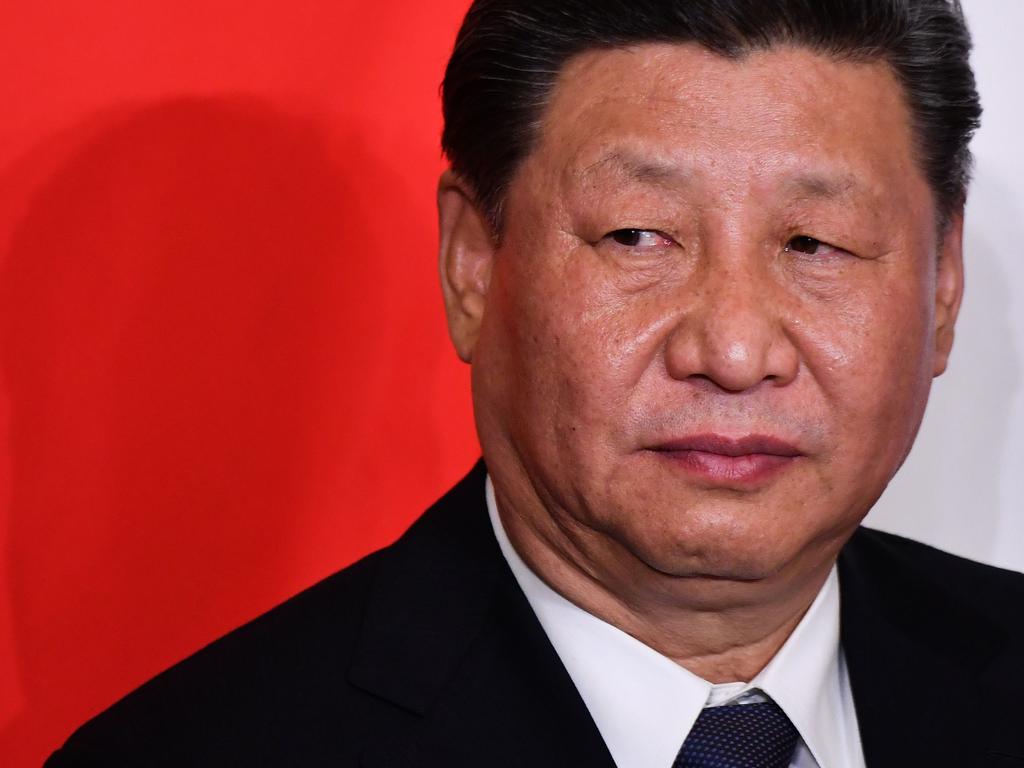Barred scholar Chen Hong thought ASIO’s visa missive was ‘fraud’
Chen Hong wants to come back to Australia despite losing his visa, after ASIO assessed him as a possible security risk.

Shanghai based Australian scholar Chen Hong wants to come back to Australia despite losing his visa on the basis that he has been assessed by the Australian Security Intelligence Organisation (ASIO) as a possible security risk to Australia.
“Once the pandemic is over, I would love to visit Australia again,” he said in an interview with The Australian by phone from Shanghai.
He said he was “shocked and disappointed” to learn that his visa to visit Australia revoked.
“There was no way I would be doing anything which is a risk to Australia,” he said.
“This is the kind of thing I never imagined would be happening to me.”
Chen, who has been director of the Australian Studies Centre at the East China Normal University since 2001 and has been visiting Australia since the early nineties, is a long time student of Australian author Patrick White and translated for former Prime Minister Bob Hawke during a visit to China in the nineties.
He said he initially thought an email he got from the Federal Department of Home Affairs telling him his visa was revoked as he as a possible security risk to Australia was a scam.
“A month ago, I received an email saying my visa was revoked on the basis that I was a security risk to Australia,” he said.
“I thought it was a fraud or a scam.”
But he said he then came back to the email and was shocked to find it was real.
“I was disappointed and distressed,” he said.
Mr Chen said he then wrote back to the department, hoping to convince it to change its mind.
“I wrote a letter back saying that there was no way I accept that assessment of me,” he said.
“I am one of the most vocal proponents of understanding between Australia and China.
“I have a deep fondness of for Australia.”
He said he had been given no reason for the decision and had received no reply to his email trying to get the decision overturned.
Mr Chen, who has had his visa to visit Australia revoked, along with Australian studies scholar Li Jianjun, is one of the most high profile academics in the network of Australia China centres around China.
Li Jianjun, who is director of the Australian Studies Centre, Beijing Foreign Studies University and has been secretary-general of the Chinese Association for Australian Studies since 2014, is currently working on a PhD on Australian writers of the fifties and sixties including James Aldridge, Frank Hardy, Jack Lindsay, Dymphna Cusack, Katharine Susannah Prichard, Mona Brand, Wilfred Burchett, Leslie Rees, and Henry Lawson.
Chen often describes Australia as his “second home” and says he has a lot of friends in Australia, some of whom keep in regular communication through WeChat groups, China’s equivalent of WhatsApp.
He has been a frequent commentator on Australian affairs for Chinese newspapers such as the nationalistic Global Times as well as with the Australian media.
He said he had had a three-year visa to come to Australia which was due to expire next year.
He said he had been visiting Australia two to three times a year and visited the county five or six times last year.
His last visit to Australia was in January for the annual high level dialogue between Australia and China.
The Australian delegation was headed up by former Prime Minister John Howard.
Mr Chen’s interest in Australia goes back to the eighties when he began studying Australian literature at East China Normal University.
The university hosted one of a number of centres of Australian studies which were initially focused on the study of Australian literate.
Chen became a passionate follower of author Patrick White and has a WeChat group of fellow Chinese followers of White.
Chen began studying Australian literature at the East China Normal University in the eighties, deciding to become an expert on Patrick White after reading White’s The Tree of Man.
He did his Masters thesis on White’s Voss, based on the experience of explorer Ludwig Leichhardt, which he credited with giving him an insight into the Australian outback.
He did a PhD on White and translated David Marr’s biography of White into Chinese.
Giving a paper on White at an Australian studies conference in China in 1990, he met former Australian Prime Minister Gough Whitlam who arranged for him to visit Australia in 1991.
He spent time at La Trobe University in Melbourne, beginning a lifetime of building up contacts in academia in Australia.

In 1994 he was asked to translate for former Prime Minister Bob Hawke during a visit to China.
In 2001 he took over as director of the Australian studies centre at his university, building it up as one of the most active and high profile of more than 30 Australian studies centres across China.
Chen said he did have a WeChat group which included friends based in Australia which has been mentioned this week in the media in Australia.
“It is a totally innocuous private friendly WeChat group.
“I went through it last week. I scrolled back and looked through the content.
“I have a lot of close friends in Australia.
“We post articles in Chinese and English of interest. We share pictures and post funny pictures of animals.”
Mr Chen said he had been critical of Australian policy on China and what he saw as the rise in anti-China sentiment in his writings recently.
He said he hoped these comments, which have not gone down well with some in Canberra, were not part of the reason that he had his visa withdrawn.
“There are of course a lot of things which Australia and China don’t agree on.”
He said he felt that “Canberra” had been leading the anti-China rhetoric and was “taking measures to break up with China”.
“When China makes any response to it, it is attacked as ‘Wolf Warrior’ diplomacy,” he said.
Mr Chen has argued this his criticisms on the federal government’s policies on China are akin to the argument put forward by forward by former Prime Minister Kevin Rudd who spoke frankly about China’s human rights issues on his first visit to Beijing as Prime Minister.








To join the conversation, please log in. Don't have an account? Register
Join the conversation, you are commenting as Logout